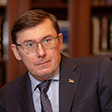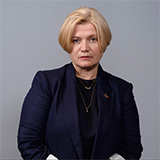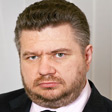Повернутися до старих недобрим часи? (Economist)
http://www.economist.com/blogs/easternapproaches/2010/09/media_ukraine Back to the bad old days?
Back to the bad old days?
September 24th 2010, Economist
KHARKIV
LAST week Ukrainians marked the tenth anniversary of the murder of Georgiy Gongadze, an investigative journalist who had embarrassed the government. Prosecutors recently pointed the finger at the the late Yuri Kravchenko, interior minister at the time, but contemporary tape recordings, not yet authenticated, suggest that then-president Leonid Kuchma may have been involved. Such tactics were commonplace in pre-Orange Ukraine.
The fear is that, after years of media plurality after the Orange revolution, they may be starting to return. Two well-known journalists have been beaten by police in recent weeks. During a recent trip to Kharkiv, in the east of the country, I met Andriy Kristenko, a civil-society activist. Pointing to the shelves in his office, he said: "all those folders are torture cases. And you want to talk about press freedom? This government doesn't care about press freedom."
Yet for most Ukrainian journalists, state-sanctioned violence is less of a concern than state control, direct or indirect, of media outlets, particularly television channels. Journalists at all the main private channels complain of pressure from above not to criticise, and two independent stations have had their frequencies revoked.
This may have as much to do with Ukraine's corrupt and sycophantic political and business landscape as much as it does government policy. Between them, four Ukrainian oligarchs control all of the country's major television channels. One of them, Valeriy Khoroshkovsky, also heads the security service, the SBU. Competition between the four, Mr Khoroshkovsky told me, would deliver media pluralism. The fuss, he said, was being driven by Yulia Tymoshenko's opposition block ahead of local elections in late October.
Mr Khoroshkovsky himself has not always gone to great lengths to showcase the country's media freedom. Earlier this year his Inter Media Group brought a case against the only two television outlets that Ukrainian media watchdog Telekritika deems genuinely independent, claiming they had obtained their terrestrial frequencies illegally. Inter won, and the two channels have lost a large chunk of their distribution. Inter may have had legitimate business reasons for its case. Yet the effect on Ukraine's reputation has been damaging.
http://www.economist.com/blogs/easternapproaches/2010/09/media_ukraine
Many journalists and activists believe it suits the authorities for journalists to feel afraid. At Telekritika's headquarters in Kiev, Lesja Ganzha, who belongs to an anti-censorship movement, compared the current Ukrainian policy to that pursued by Russia in the early Putin years. "It's not just a comparable policy, it's exactly the same policy," she told me.
This may be a stretch. As Mr Kuchma once wrote, Ukraine is not Russia. Ms Tymoshenko, for example, can still appear on Ukraine's most popular talk shows. Ms Ganzha agrees that Ukrainian civil society is still strong, and that President Yanukovych, who took power this February, is far less popular than Mr Putin at a comparable stage in his presidency. Yet Ukrainians only have to look back ten years to know that things can get a lot worse.







